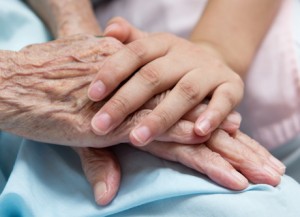Is Your Family Member or Loved One an Elder Abuse or Nursing Home Victim?
 Serious injury or death can result from insufficient staffing, inadequately trained staff, or neglect of duties by nursing home personnel. More people have moved into assisted living facilities as the United States population ages. As a result, nursing home claims are becoming more common.
Serious injury or death can result from insufficient staffing, inadequately trained staff, or neglect of duties by nursing home personnel. More people have moved into assisted living facilities as the United States population ages. As a result, nursing home claims are becoming more common.
Washington State Law Offers Protection to Vulnerable Adults
Nursing home negligence and abuse, as well as other forms of elder abuse, are known as Vulnerable Adult Abuse. The State of Washington developed this term to describe negligent, dangerous and harmful actions inflicted on adults who rely on others for care. Residents of nursing homes, assisted living facilities, adult boarding homes or even their own homes are protected by the Vulnerable Adults Statute, RCW 74.34.020. This law strengthens the claims of victims of abuse, abandonment, financial exploitation or neglect because they can be awarded their damages and attorney’s fees and the costs of the lawsuit. It also arms law enforcement and DSHS (Department of Social and Health Services) with the authority to investigate complaints.
Who is Considered a Vulnerable Adult?
A vulnerable adult is an individual who meets at least one of the following criteria:
- Is at least 60 years old and lacks the functional, mental, or physical ability to care for himself or herself;
- Has a guardian;
- Has a developmental disability;
- Resides in any facility licensed by DSHS, such as a boarding home, nursing home or residential rehabilitation center;
- Receives services from any home health, hospice, or home care agency;
- Receives services from a person under contract with DSHS as an individual provider;
- Lives at home and receives services from a paid personal aide.
What Constitutes Nursing Home Abuse and Neglect/Vulnerable Adult Abuse?
- Abandonment – leaving the victim without the means to secure food, clothing, shelter and other basic needs with which he or she needs assistance.
- Abuse – inflicting either physical or mental harm by confinement, intimidation or punishment of the victim; harm can include sexual abuse.
- Neglect – a pattern of conduct or inaction that fails to provide the goods and services that maintain the physical or mental health of a vulnerable adult, or that fails to avoid or prevent physical or mental harm or pain to a vulnerable adult.
- Exploitation – exerting undue influence or compelling the victim to perform services for another’s benefit.
Our Commitment
We believe that our most vulnerable citizens deserve our protection and a strong voice when they are exploited or abused. If you are a victim of elder or nursing home abuse, or you suspect a loved one is being abused or neglected, please contact us for a confidential and free consultation.
Resources
- Washington State DSHS, Adult Protective Services
Signs of abuse, prevention tips and information on reporting abuse (DSHS EndHarm Hotline 1-866-363-4276). - Seattle Police Department, Elder/Vulnerable Adult Abuse
Contact information for detectives available to answer general questions and provide advice on investigating suspected abuse in the City of Seattle, resources and information regarding adult abuse. - National Center on Elder Abuse (NCEA)
Information for professionals and the general public on research and training, news and resources on elder abuse, neglect and exploitation. - National Committee for the Prevention of Elder Abuse (NCPEA)
Aims to prevent elder abuse through research, education and advocacy. - U.S. Administration on Aging (AOA)
Provides home and community-based services, links to local programs and resources for the aging and their caregivers.
